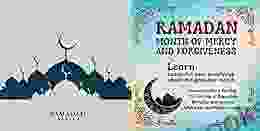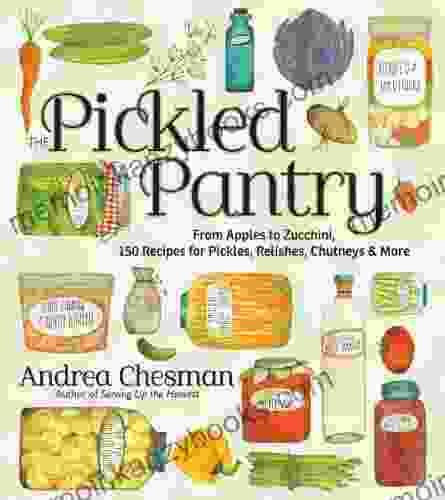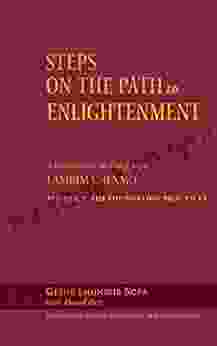Learn and Enrich Your Knowledge About the Greatest Month: Concepts About Fasting

Fasting has been practiced for centuries by people of various cultures and religions. It is a powerful tool that can have numerous benefits for both the body and mind. In this article, we will explore the concept of fasting, its history, types, benefits, and how to fast safely.
History of Fasting
5 out of 5
| Language | : | English |
| File size | : | 996 KB |
| Text-to-Speech | : | Enabled |
| Screen Reader | : | Supported |
| Enhanced typesetting | : | Enabled |
| Print length | : | 15 pages |
| Lending | : | Enabled |
The practice of fasting dates back to ancient times. It has been mentioned in religious texts, historical records, and medical texts. The earliest evidence of fasting can be found in the writings of ancient Egypt, Greece, and India.
Fasting was often used as a form of religious observance. In many cultures, it was believed that fasting could help to purify the body and soul. Fasting was also used as a way to connect with a higher power or spiritual beings.
Over the centuries, fasting has been used for a variety of purposes, including:
- Religious observances
- Medical treatments
- Weight loss
- Political protests
- Personal growth
Types of Fasting
There are many different types of fasting. Some of the most common include:
- Intermittent fasting: This type of fasting involves alternating periods of eating and fasting. The most common intermittent fasting methods are the 16/8 method (fasting for 16 hours and eating for 8 hours) and the 5:2 method (eating normally for 5 days and restricting calories on the other 2 days).
- Alternate-day fasting: This type of fasting involves fasting every other day. On fasting days, you can either eat nothing or very little.
- Water fasting: This type of fasting involves drinking only water for a period of time. Water fasting is not recommended for extended periods of time, as it can be dangerous.
- Juice fasting: This type of fasting involves drinking only fruit and vegetable juices for a period of time. Juice fasting is a good way to cleanse the body and get a boost of nutrients.
- Dry fasting: This type of fasting involves abstaining from both food and water for a period of time. Dry fasting is not recommended for extended periods of time, as it can be dangerous.
Benefits of Fasting
Fasting has been shown to have a number of benefits for both the body and mind. Some of the benefits of fasting include:
- Improved insulin sensitivity: Fasting can help to improve insulin sensitivity, which is important for regulating blood sugar levels.
- Reduced inflammation: Fasting has been shown to reduce inflammation throughout the body. Inflammation is linked to a number of chronic diseases, including heart disease, cancer, and diabetes.
- Weight loss: Fasting can help to promote weight loss by reducing calorie intake and increasing fat burning.
- Improved cognitive function: Fasting has been shown to improve cognitive function, including memory, attention, and focus.
- Increased longevity: Studies have shown that fasting may help to increase longevity in animals.
How to Fast Safely
If you are considering fasting, it is important to do so safely. Here are a few tips:
- Start slowly: If you are new to fasting, start with short periods of time, such as 12 hours. Gradually increase the length of your fasts as you become more comfortable.
- Stay hydrated: It is important to stay hydrated when you are fasting. Drink plenty of water throughout the day.
- Listen to your body: If you are experiencing any negative side effects from fasting, such as dizziness or nausea, stop fasting and consult with a doctor.
- Break your fast gradually: When you are breaking your fast, do so gradually. Start with small meals and gradually increase the amount of food you eat over time.
Fasting is a powerful tool that can have numerous benefits for both the body and mind. If you are considering fasting, be sure to do so safely. Talk to your doctor before starting any fasting regimen, especially if you have any underlying health conditions.
5 out of 5
| Language | : | English |
| File size | : | 996 KB |
| Text-to-Speech | : | Enabled |
| Screen Reader | : | Supported |
| Enhanced typesetting | : | Enabled |
| Print length | : | 15 pages |
| Lending | : | Enabled |
Do you want to contribute by writing guest posts on this blog?
Please contact us and send us a resume of previous articles that you have written.
 Book
Book Novel
Novel Page
Page Chapter
Chapter Text
Text Story
Story Genre
Genre Reader
Reader Library
Library Paperback
Paperback E-book
E-book Magazine
Magazine Newspaper
Newspaper Paragraph
Paragraph Sentence
Sentence Bookmark
Bookmark Shelf
Shelf Glossary
Glossary Bibliography
Bibliography Foreword
Foreword Preface
Preface Synopsis
Synopsis Annotation
Annotation Footnote
Footnote Manuscript
Manuscript Scroll
Scroll Codex
Codex Tome
Tome Bestseller
Bestseller Classics
Classics Library card
Library card Narrative
Narrative Biography
Biography Autobiography
Autobiography Memoir
Memoir Reference
Reference Encyclopedia
Encyclopedia Andrea Henry
Andrea Henry Lauren Kelly
Lauren Kelly Meir Schneider
Meir Schneider Dave Villager
Dave Villager Amy Stein
Amy Stein Andrea Reynolds
Andrea Reynolds Amy Dresner
Amy Dresner Julie Massoni
Julie Massoni Russell Targ
Russell Targ Debra Jaliman
Debra Jaliman William Horwood
William Horwood Brooklyn Niro
Brooklyn Niro Ammie Elliott
Ammie Elliott Amblesideonline Educational Foundation
Amblesideonline Educational Foundation Amber Shehan
Amber Shehan Ananta Ripa Ajmera
Ananta Ripa Ajmera Amram Shapiro
Amram Shapiro Michele Rosa Morrison
Michele Rosa Morrison Laura Town
Laura Town Deborah Snyder
Deborah Snyder
Light bulbAdvertise smarter! Our strategic ad space ensures maximum exposure. Reserve your spot today!

 Ignacio HayesThe Poignant and Provocative "Sick Girl" by Amy Silverstein: A Journey of...
Ignacio HayesThe Poignant and Provocative "Sick Girl" by Amy Silverstein: A Journey of...
 Jack PowellA Culinary Journey of Self-Discovery: A Delicious Memoir of Food, Family, and...
Jack PowellA Culinary Journey of Self-Discovery: A Delicious Memoir of Food, Family, and... Branden SimmonsFollow ·14.5k
Branden SimmonsFollow ·14.5k Mike HayesFollow ·4.1k
Mike HayesFollow ·4.1k Hassan CoxFollow ·18.4k
Hassan CoxFollow ·18.4k Yukio MishimaFollow ·18.5k
Yukio MishimaFollow ·18.5k Theodore MitchellFollow ·7.5k
Theodore MitchellFollow ·7.5k Haruki MurakamiFollow ·16k
Haruki MurakamiFollow ·16k Ernest HemingwayFollow ·2k
Ernest HemingwayFollow ·2k Martin CoxFollow ·11.1k
Martin CoxFollow ·11.1k

 Miguel Nelson
Miguel NelsonFour Cookbooks In One: Recipes To Fight Cancer, Heart...
Looking for a healthy way...
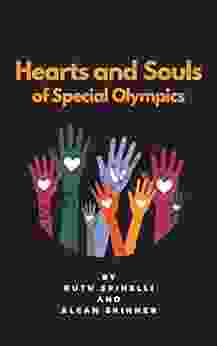
 Marcus Bell
Marcus BellHearts and Souls: Exploring the Lives and Legacies of...
The Special Olympics movement has been a...

 Tony Carter
Tony CarterDiagnosed With Breast Cancer: Navigating Life After the...
A breast cancer diagnosis can be a...
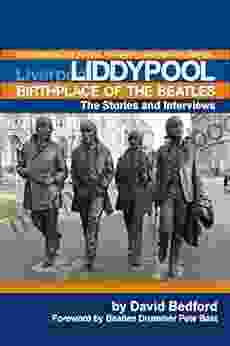
 Joe Simmons
Joe SimmonsLiddypool: The Stories and Interviews – A Literary...
In the realm of...

 Jett Powell
Jett PowellBreakfast for Boneheads: 66 Breakfast Recipes for Lazy...
Are you tired of eating the...
5 out of 5
| Language | : | English |
| File size | : | 996 KB |
| Text-to-Speech | : | Enabled |
| Screen Reader | : | Supported |
| Enhanced typesetting | : | Enabled |
| Print length | : | 15 pages |
| Lending | : | Enabled |


